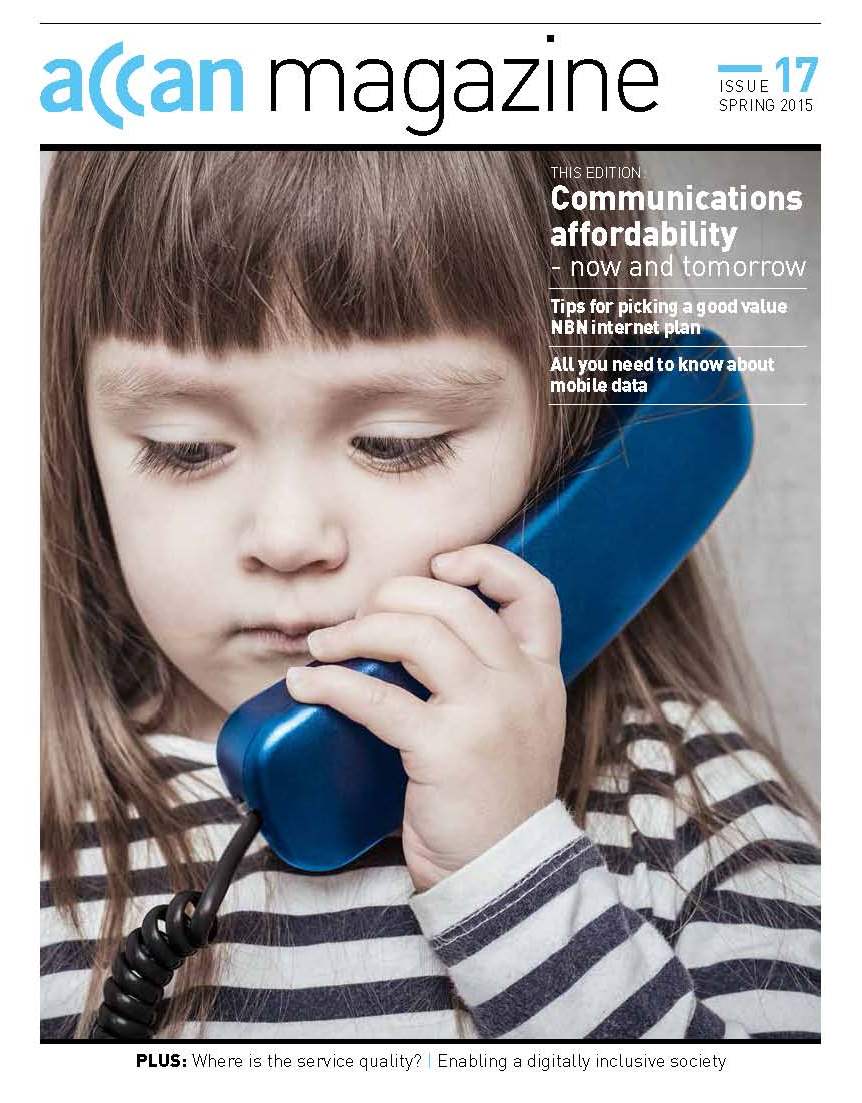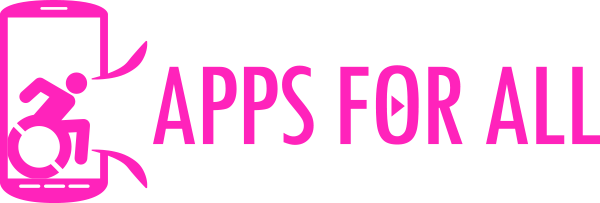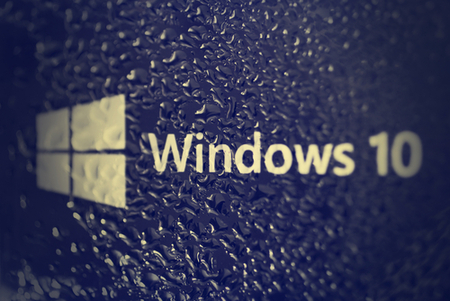- Details
Infrastructure Australia is tasked with producing a 15 year national Infrastructure Plan. In order to produce this they first set out to conduct an audit report. The Audit identified the key challenges which need to be addressed in the plan. Telecommunications infrastructure was one element examined by the audit.
- Details
The first communities which switched to the NBN fixed network experienced a number of issues. One issue was that some consumers were disconnected from their existing network while waiting for an NBN service to be activated, leaving them without services. To resolve this, and prevent its recurrence in the next planned switch over areas, additional time before disconnection of existing connections has been proposed. The ACCC also asked whether the additional time should be applied more generally to other areas or for known 'hard to reach' premises with complications, such as those with alarms.
- Details
The ACCAN Annual General Meeting was held in Sydney on Wednesday, 2 September, 2015. At the meeting the following three candidates were elected to the Board:
- Sandra Milligan
- Ryan Sengara
- Chris Dodds
Congratulations to returning directors Sandra and Ryan and a warm welcome to Chris who is joining the ACCAN Board for the first time.
These three new Board members join the six continuing Directors below whose terms conclude at the 2015 and 2016 ACCAN AGM.
Read more: Results of ACCAN Board Election
Write comment (0 Comments)- Details

Download: ![]() ACCAN Magazine Issue 17 Spring 2015.pdf3.14 MB (Note: reading order not accessible)
ACCAN Magazine Issue 17 Spring 2015.pdf3.14 MB (Note: reading order not accessible)
Download accessible version: ![]() ACCAN Accessible Magazine - Spring 2015.docx45.5 KB
ACCAN Accessible Magazine - Spring 2015.docx45.5 KB
- Details

The Australian Communications Consumer Action Network (ACCAN), along with Telstra, has today announced the winners of the second Apps For All Challenge at the 2015 ACCAN National Conference in Sydney. Launched last year, the Apps For All Challenge is Australia's only competition that awards the most accessible smartphone and tablet apps.
The Challenge awards apps in four categories. Winners were given a cash prize from Telstra and will receive promotion through Telstra's social media channels.
Read more: Winners of the 2015 Apps For All Challenge announced
- Details
The Australian Communications Consumer Action Network (ACCAN) has today kicked off its 2015 National Conference, Dollars and Bytes – Communications affordability now and tomorrow. The Conference, held in Sydney from 1-2 September, will explore the wide-ranging issue of affordability. Affordability of telecommunications services, along with accessibility and availability, are key focus areas for ACCAN.
Affordability is becoming increasingly important as access to telecommunications services is essential for full economic, social and cultural participation. The main method of communicating with many Government agencies is now through online channels. With the implementation of the Federal Government's Digital First Strategy, this is set to become even more widespread. The strategy will require all Government services and public interactions to be available online by 2017. The formation of the Digital Transformation Office (DTO) will help the Government implement this strategy. The inaugural DTO CEO, Paul Shetler, will deliver a presentation at the Conference.
Read more: ACCAN’s 2015 National Conference explores affordability issues
- Details
 Our 2015 Conference, Dollars and Bytes – Communications affordability now and tomorrow, is fast approaching! Only one week to go, so now is the time to register before registration closes at midnight on Friday, 28 August. (Due to browser settings some people may have trouble connecting to the registration site using Firefox. If this is the case, please use another browser such as Google chrome).
Our 2015 Conference, Dollars and Bytes – Communications affordability now and tomorrow, is fast approaching! Only one week to go, so now is the time to register before registration closes at midnight on Friday, 28 August. (Due to browser settings some people may have trouble connecting to the registration site using Firefox. If this is the case, please use another browser such as Google chrome).
It's going to be a great two days. We've got over 40 speakers and panellists from a range of organisations across industry, community groups and government.
Access the full Conference Program online. Some of the presentations and sessions to look forward to are:
- The keynote by Claire Milne, Visiting Senior Fellow, Department of Media and Communications, London School of Economics
- The opening address by the Hon. Malcolm Turnbull MP, Minister for Communications
- Presentation by ACCC Chairman, Rod Sims
- Presentation by Digital Transformation Office CEO, Paul Shetler
Read more: One week until the ACCAN Conference!
Write comment (0 Comments)- Details

With the 2015 ACCAN Conference fast approaching, we can now reveal the shortlist for the second Apps For All Challenge!
The Challenge acknowledges those Australian developed apps which are most accessible for all consumers, including consumers living with a disability or older Australians. An accessible app is designed with the largest number of people in mind. Accessibility is not only crucial for the almost 1 in 5 Australians living with some form of disability, but it also means developers can target millions more customers who were previously locked out of the app market. 
This year’s Challenge is sponsored by Telstra. The lucky winners will receive a cash prize from Telstra as well as promotion through Telstra’s social media channels.
We’ll be announcing the winners at a ceremony on 1 September at our National Conference, Dollars and Bytes – Communications affordability now and tomorrow. You can register here to attend.
Good luck to all of the shortlisted apps and developers!
Read more: Apps For All Challenge shortlist announced
Write comment (0 Comments)- Details
 After a lot of hype, Microsoft has finally delivered Windows 10.
After a lot of hype, Microsoft has finally delivered Windows 10.
With a bunch of new features and improvements, such as a good firewall and rapid start-up of your favourite programs, it is a very attractive computer interface, but there is a real sting in the tail if you are someone on a restricted internet plan!
First of all to upgrade to Windows 10 you have to download the whole thing from Microsoft.
Read more: Is Windows 10 free? Not entirely
Write comment (2 Comments)- Details
Our 2016 Conference is all about equipping consumers with the tools they need to get and stay connected to communications services. We have identified three key areas where consumers need better tools. Please share your responses with us on any of the questions below:
- What legal protections do consumers need to help them get/stay connected?
- What information needs to be more widely accessible to consumers?
- How could products be better designed to suit consumer needs?
- Details
 This year our keynote speaker for the ACCAN National Conference is Claire Milne, MBE, Visiting Senior Fellow, Department of Media and Communications, London School of Economics.
This year our keynote speaker for the ACCAN National Conference is Claire Milne, MBE, Visiting Senior Fellow, Department of Media and Communications, London School of Economics.
Claire will bring a wealth of knowledge to the ACCAN Conference. She has worked in the telecoms sector since 1975 and held a series of management jobs within BT, including teletraffic theory, exchange and network design and regulation. Since 1989, she has been a consultant, first with Ovum and then in her own company Antelope Consulting. She has been a Visiting Senior Fellow at LSE since 2003. From 2008 - 2014 she chaired the Consumer Forum for Communications at Ofcom.
We interviewed Claire to get insights into her views on communications affordability in the lead up to the ACCAN Conference.
Read more: An interview with keynote speaker, Claire Milne
Write comment (0 Comments)- Details
 Access to affordable telecommunications for all consumers is one of ACCAN's three key objectives. Affordability is becoming increasingly important as access to telecommunications services is essential for full economic, social and cultural participation.
Access to affordable telecommunications for all consumers is one of ACCAN's three key objectives. Affordability is becoming increasingly important as access to telecommunications services is essential for full economic, social and cultural participation.
For example, the main method of communicating with many government agencies is increasingly through online channels and, with the Coalition Government's Digital First Strategy, this will only become more widespread. This Strategy will require all government services and public interactions to be available online by 2017.
In order for the Digital First Strategy to be a success, all Australians need to have access to the internet. There are a number of factors that contribute to a lack of internet uptake, and affordability is often found to be a factor.
Read more: Affordable communications for all Australians
Write comment (0 Comments)